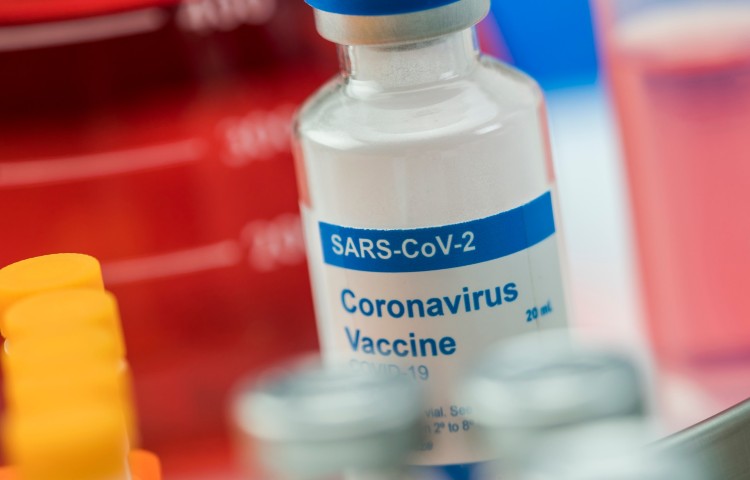

Prefer to listen instead? Here’s the podcast version of this article.
For many months, and for the majority of 2020, numerous potential vaccines for COVID-19 have been inching closer and closer to the point of being ready for distribution. And as the Pfizer and Moderna vaccines deploy for distribution in December, the United States expects around 20 million Americans to receive a COVID-19 vaccine by the end of the month.
Each version of a vaccine has many different hurdles to jump through. For example, vaccines have differing temperatures at which they need to stay to remain effective. Also, hospitals and pharma companies are coordinating a distribution process that is taking a worldwide effort.
One technology that is assisting the revolutionary distribution process in helping stifle the ongoing global pandemic is blockchain. Blockchain is seen mostly as cryptocurrency, but the technology also provides many solutions to distribute the COVID vaccine safely. Here are a few ways blockchain is empowering the COVID-19 vaccine supply chain:
PricewaterhouseCoopers (PwC) recently released a report that analyzed the state of the supply chain for pharmaceutical companies in 2020, and their analysis showed that pharma companies’ supply chains were neither cost-effective nor flexible when compared to large retail or technology companies like Apple and Walmart.
The reality is pharmaceutical companies have to scale up their distribution process in a short amount of time, and any mistakes along the way ultimately and unfortunately could cost lives. Potentially the world will need 7-19 billion doses of a COVID-19 vaccine to eradicate the virus.
With a distribution process involving a large portion of the world, blockchain can provide an openly verifiable supply chain that promotes a consensus-driven system. This solution makes sure the global consensus of who should be treated with the vaccine first gets the vaccine first (instead of bidding or paying for a dose of the vaccine).
So how would blockchain be able to provide this solution for a vaccine supply chain? An openly verifiable supply chain can be implemented with blockchain and reduce labor or the amount of paperwork associated with the shipping of a vaccine. Parties involved would enter all data related to a distribution automatically throughout the shipping process. Any party engaged in the distribution can track and verify a shipment through its entirety. And only the parties involved can access or verify within the database.
Blockchain provides the solution of improving pharma companies’ ability to scale up and down very rapidly because of the flexibility and security blockchain offers for an extensive database.
Unfortunately, as IBM reported earlier in 2020, big pharma companies have become targets of cyberattacks and, more specifically, information about a company’s vaccine shipments are even more vulnerable.
Blockchain is capable of stepping in and providing a secure cybersecurity network because of its ledger system. Blockchain’s ledger system is decentralized, meaning a database isn’t all placed in one location. Think of an accounting ledger book, but all of its pages spread throughout the world.
Another benefit is that if a cyberattack gets access to one “page” of a ledger, the hackers will not be able to access the entire dataset. And a company quickly getting notified of one breach to a page drastically reduces the risk of further unauthorized access or fraud.
Modum.io is one solutions company providing the pharma industry with a secure way to quickly move the paperwork process of a vaccine’s supply chain. Their solution utilizes smart contracts. Smart contracts play a similar role to the distribution example provided earlier. Every party involved in the shipment and distribution of a vaccine will be notified when their step of the process is triggered. Pre-setting instructions on the blockchain do this.
One common talking point with distributing a COVID-19 vaccine is figuring out how to create the best system to keep track of vaccine shipments’ temperatures throughout its supply chain. IBM’s Blockchain Services general manager, Jason Kelly, refers to this logistical challenge as the “last mile”.
Modum.io’s smart contracts can also pre-set for potential issues with a shipment. For example, if a vaccine shipment falls below the temperature threshold during its journey, recipients will be alerted they shouldn’t use their shipment or that it will be recalled. The sender would also be notified of a defective shipment.
Blockchain also ensures authentication for the “last mile” of the vaccine’s distribution. Most cases of the COVID-19 vaccine requires more than one dose to reach a stage of immunity for the vaccine’s recipients. Blockchain will also play a role in authenticating a healthcare worker’s identity and providing maintenance of patients’ records. For example, a patient’s stage of their vaccination and potential after-effects can be monitored and stored with blockchain.
Providing billions of doses of the COVID-19 vaccine to literally billions of people is no small task, but implementing innovative technologies like blockchain into the supply chain and distribution process is a step that helps with cost, security, and logistics. And the groundwork is being laid down to a point where blockchain will help the healthcare industry even after the pandemic is controlled.
Interested in learning more about blockchain and how to apply the tech for your business? Contact us at info@quantilus.com for a consultation. You may learn more about our blockchain services here.
WEBINAR